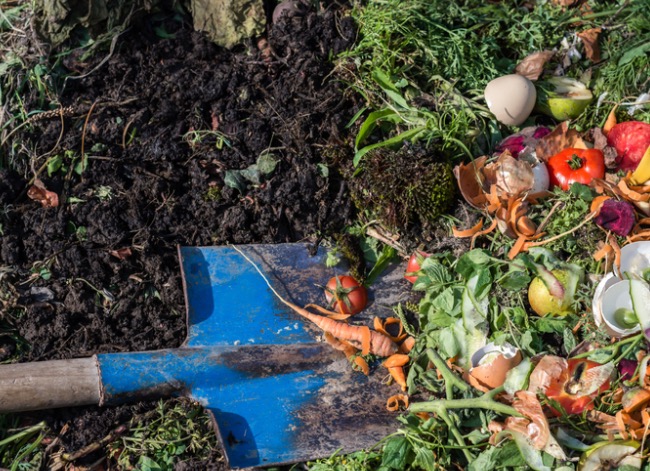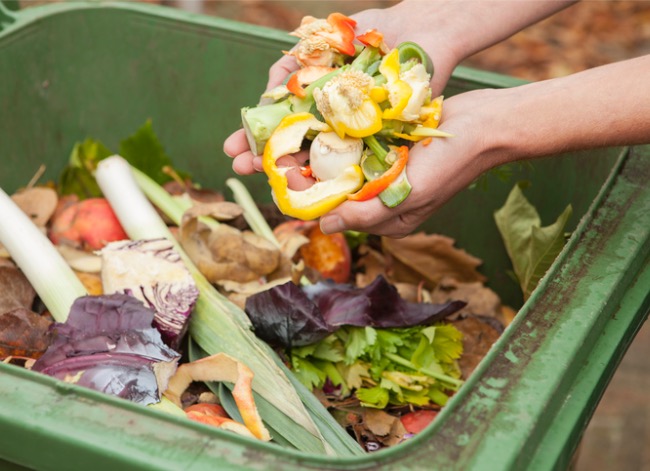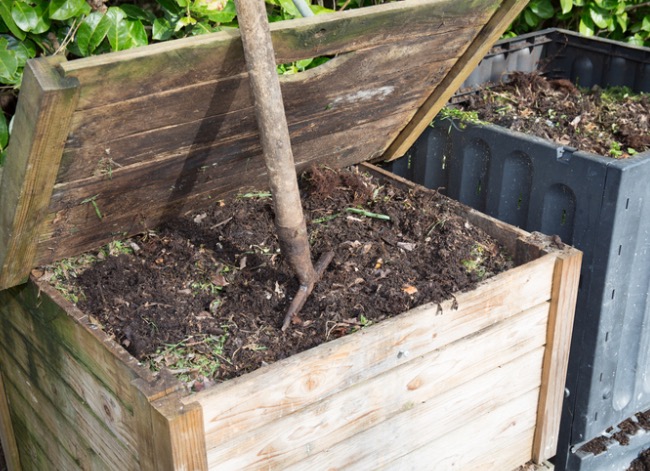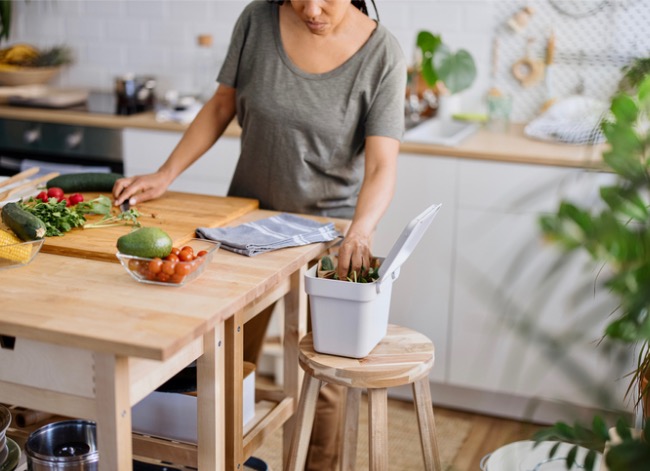

We may earn revenue from the products available on this page and participate in affiliate programs. Learn More ›
The best gardeners know the simple truth about compost: It’s better than fertilizer when it comes to providing a nutrient-rich growing environment for plants. Composting is easy and inexpensive, and anyone can do it. But for the best compost and composting experience, you need to include the right ingredients and choose the right composting system. Here’s a quick Composting 101 overview to help you get started.
Composting Basics
Soil is a blend of weathered rock particles, air, moisture, and organic matter. The organic content comes, mostly, from the end of the plant life cycle. Fallen leaves, rotten logs, dead plants, and other debris convert to dark, rich humus over time. An entire ecosystem of decaying organisms that includes insects, earthworms, fungi, bacteria, and others, contributes to the composting process.
Composting is essentially managing the natural processes of organic waste decomposition. Here’s all you need to get started on your composting 101 project:
- Brown materials: dry leaves, wood chips, sawdust, straw, cardboard, newspaper
- Green materials: kitchen vegetable scraps, grass clippings, garden weeds
- Convenient access to water
- Breathable compost bins, or a sunny place to build a compost pile
- Tools: garden hose, garden fork, spade, and wheelbarrow or buckets

Benefits of Composting
Compost is an important ingredient for improving garden soil. Soil with higher organic content is linked to improved fertility, efficient nutrient usage, fewer plant diseases, reduced stormwater runoff, and improved groundwater quality. Backyard composting is a key step toward improving soil quality while reducing household waste.
The organisms that do the work in a compost system need a consistent supply of oxygen and water, plus the right mixture of carbon (supplied by “brown” ingredients) and nitrogen (supplied by “green” ingredients). You’ll know you got it right when the pile gets warm, and eventually smells like sweet soil—not sewage. For the best results:
- Incorporate 3 parts brown ingredients with 1 part green ingredients. You can build a pile all at once or gradually over time, but be sure to maintain this ratio with each new addition.
- Water the mixture just enough to maintain a “moist sponge” feel.
- Turn or tumble the mixture every 7 to 10 days for thorough aeration.
Related: 8 Top Tips for How to Use Compost

Composting Methods
Following the optimum material ratios, there are several ways to achieve high-quality compost. Many experienced gardeners manage more than one composting system. Your choice will likely depend on the amount of space available, the amount of organic waste you need to dispose of, the amount of time available, and other personal factors. Any of these methods can provide excellent results.
- Hot composting: An actively managed compost system generates heat that kills weed seeds, pests, and plant disease remnants. To generate adequate heat (140 degrees Fahrenheit), a pile should be at least 4 feet high, 4 feet wide, and 4 feet deep, with particles no larger than 2 inches. Large, enclosed bins can also generate high heat. Build the pile, monitor the moisture, turn it every week or so, and the compost will be finished in 2 to 3 months.
- Cold composting: Passively managed compost systems do not generate enough heat to eliminate weeds, pests and diseases, so more care is required in selecting problem-free ingredients. Simply build the pile and leave it alone for 12 to 24 months.
- Worm composting: Also known as vermicomposting, this is an excellent option for making small batches of compost. A wooden box or plastic bin is filled with moistened, shredded paper that acts as both worm bedding and a carbon source. Green ingredients are added every few days. You typically can harvest worm compost (worm castings) at 1 to 2 month intervals.

You SHOULD compost:
- Grass clippings
- Dead leaves and small twigs
- Wood chips and sawdust
- Hay and straw
- Fruits and vegetables
- Coffee grounds, filters, tea bags
- Cardboard rolls
- Dryer and vacuum cleaner lint
- Fireplace ashes
- House plants
- Nutshells
- Shredded newspaper
- Cotton and wool rags
You SHOULD NOT compost:
- Dairy products. They cause odor problems and may attract pests.
- Yard trimmings treated with pesticides. Chemicals might kill beneficial composting organisms.
- Coal or charcoal ash. Either could contain substances that are harmful to plants.
- Diseased or insect-ridden plants. These may survive the compost process only to be transferred back to your garden.
- Pet waste. It could contain parasites, bacteria, or germs harmful to humans.
- Meat scraps or fish bones. They cause odor problems and can attract pests.
- Black walnut tree twigs or leaves. They release substances harmful to other plants.
- Fat, grease, lard, or oil. They cause odor problems and attract pests.
Related: Can You Compost Bread? The Great Debate, Solved!
Final Thoughts
Composting is an easy way to dispose of kitchen scraps and yard waste while making a valuable soil amendment for your indoor or outdoor plants. Getting started is as simple as determining the system that best fits your garden space and lifestyle, and piling up the ingredients. It doesn’t have to be expensive or overly time consuming. Making high-quality compost only requires an intentional effort to mix the right ingredients and a commitment to occasional management tasks.

FAQs About How to Compost
If you still have questions about composting, read on. These frequently asked questions provide even more information about this easy, natural process.
Determine where you’ll set up your system and how much stuff you need to compost. Then choose the method (hot composting, cold composting, or worm composting) that best fits.
Choose an enclosed system, like a compost bin, tumbler, or worm compost system, to keep the pile better contained. An open compost pile is a great choice for making larger quantities, and you can cover it with a tarp to contain the mess and hold in moisture. Then start piling up the ingredients.
Large, actively managed compost bins, tumblers, and piles can process the material in about 2 months. Worm bins turn out compost in a month or two. Passively managed piles may take up to 2 years to break down.
Start in a warm, sunny location. Cover loosely to hold in moisture while allowing for airflow. Maintain the right ratio of brown and green ingredients. Aerate (turn) the batch frequently. Add water if the batch feels dry. Add a handful of soil from your garden each time you add new ingredients to boost the beneficial microbe population.
Start with a healthy 3:1 ratio of brown and green ingredients. Moisten it well and keep it aerated. Smaller particles break down faster than larger ones, so breaking up or grinding chunky material before composting can also help expedite the process.
Strive for a ratio of 3 parts brown ingredients to 1 part green ingredients, by volume.
